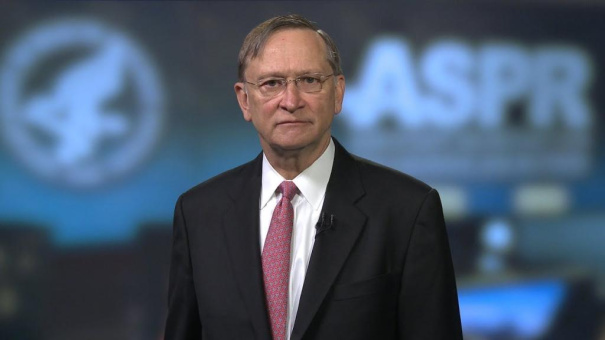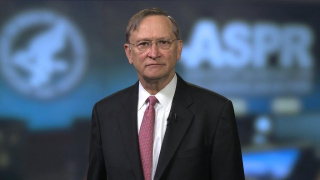Departing HHS Deputy Director Tevi Troy soon took a gig as a high-powered lobbyist for the JUUL e-cigarette company, which had run into some regulatory barriers as a result of the Tobacco Control Act, which had just been signed by then-President Obama. Margaret Hamburg, founding member of the NTI, was then Commissioner of the FDA and stalled enforcement of the new regulations; a tacit non-enforcement policy had persisted at the FDA until the recent vaping flavor ban, which followed renewed health concerns raised by a 2018 NIH report.
Why a former HHS official would take up the mantle to promote the use of a product known to be injurious to health can be answered by looking at Dr. Troy’s close links with PIPS and the Hudson Institute. Couched in free-market rhetoric, these institutions are vehicles for the policy initiatives their billionaire funders want to see implemented, with its subsidiary think tanks, like PIPS, serving as satellites orbiting closer to the center of power.
As an adjunct fellow of the Hudson Institute and senior fellow at PIPS, Tevi Troy appears to play a pivotal role coordinating between the two. The Hudson Institute was founded in 1961 by former RAND military strategist, systems theorist and Dr. Strangelove inspiration Herman Kahn. After Kahn’s passing in 1983, the Institute was “heavily recruited” by the Lilly Endowment – the largest private foundation in the United States, by far – and became a magnet for the same radical conservative billionaire networks that patronize it today.
Among its biggest donors are familiar names like Microsoft, Lockheed Martin Corporation, The Charles Koch Foundation, Boeing and Emergent BioSolutions. In 2004, Lilly Endowment returned to Washington D.C., announcing it would “return to its roots of national security and foreign policy” as a result of the war on terror becoming an “overarching national concern”.
PIPS and the Hudson Institute would come to play a central role in Kadlec’s upcoming efforts to make biodefense a national priority with him at the helm of a vastly expanded office of ASPR. But, it would be a few years yet. Meanwhile, there was more to be done in the area of legislation, not to mention private enterprise.
Building on all previous versions of Kadlec’s original PAHPA, the Pandemic and All-Hazards Preparedness Reauthorization Act (PAHPRA) of 2013 established two more instruments that strengthened his ultimate goal. First, the PHEMCE Strategy and Implementation Plan (SIP) was codified into law, which formalized the original legislation’s ties to the budget office and secondly, it streamlined the Emergency Use Authorization (EUA) facility for the FDA to fast-track drug approvals.
SHOW ME THE MONEY
Soon upon returning to the private sector, Robert Kadlec helped found a new company in 2012 called “East West Protection,” which develops and delivers “integrated all-hazards preparedness and response systems for communities and sovereign nations.” The company also “advises communities and countries on issues related to the threat of weapons of mass destruction and natural pandemics.”
Kadlec formed the company with W. Craig Vanderwagen, the first HHS ASPR after the post’s creation had been largely orchestrated by Kadlec. The other co-founder of East West Protection was Fuad El-Hibri, the founder of BioPort/Emergent Biosolutions, who had just stepped down as Emergent’s CEO earlier that year.
El-Hibri has numerous business connections to the Kingdom of Saudi Arabia, where he and his father, Ibrahim El-Hibri, had once sold stockpiles of anthrax vaccine to the Saudi government for an exorbitant price per dose. East West Protection chased after the opportunity to fit the Kingdom with a custom-built biodefense system, but ultimately failed to finalize the deal despite El-Hibri’s connections. Instead, East West Protection sold its products to a handful of U.S. states.
Kadlec was the firm’s director from its founding until at least 2015, later selling his stake in the company to El-Hibri. Upon being nominated to serve as ASPR in the Trump administration, Kadlec failed to disclose his ties to East West Protection and El-Hibri and he has since claimed to only have been involved in the founding of the firm, despite evidence to the contrary.
Robert Kadlec’s forays into the private sector during this period went far beyond East West Protection. Kadlec’s consultancy firm, RPK Consulting, netted him in $451,000 in 2014 alone, where he directly advised Emergent Biosolutions as well as other pharmaceutical companies like Bavarian Nordic. Kadlec was also a consultant to military and intelligence contractors, such as the DARPA-backed firm Invincea and NSA contractor Scitor, which was recently acquired by SAIC.
Kadlec’s consulting work for intelligence-linked companies earned him the praises of spooks turned entreprenuers, including Steve Cash – a former CIA officer and founder of Deck Prism, itself a consultancy firm that retained Kadlec. Cash recently toldThe Washington Post that “Everybody loves Dr. Bob [Kadlec],” adding that he was a “national treasure.”
ON BIOWARFARE’S EVE
Kadlec had certainly been accumulating a treasure chest of power aided by some very cozy relationships in the consulting business and, by now, the stage had been set for a big push to create an official body within the halls of the legislature; an embedded consultancy firm, of sorts, to promote the designs of the biowarfare clique.
That year, Robert Kadlec put together a Blue Ribbon Study Panel sponsored jointly by the Hudson Institute and a PIPS subsidiary institution called the Inter-University Center for Terrorism Studies (IUCTS), managed by Dr. Yonah Alexander. Kadlec’s Blue Ribbon Panel was chaired by Senator Joe Lieberman and included the indispensable input of Tom Daschle, Donna Shalala and other members of the biowarfare policy club.
The study panel issued a report in late 2015 entitled “A National Blueprint for Biodefense” calling for 33 specific initiatives, such as the creation of a “biodefense hospital system” and implementing a “military-civilian collaboration for biodefense.” In addition, the panel recommended that the office of the Vice President lead a White House “Coordination Council” to oversee and guide biodefense policy.
An official body called the Bipartisan Commission on Biodefense would be formed shortly thereafter with all the Blue Ribbon Panel members and many others like Commission co-chair Tom Ridge and, perhaps unsurprisingly, Tevi Troy and Yonah Alexander, who serve as Ex-officio members. Alongside them is Lewis “Scooter” Libby, former Chief of Staff to Dick Cheney and Senior Vice President of the Hudson Institute, which also happens to be the fiscal sponsor of the Commission.
In the acknowledgements, the panel’s 2015 report includes an homage to Robert Kadlec to whom they bestow credit for the achievement, which only “exists because of the foresight, forbearance, and perpetual optimism of Dr. Robert Kadlec. Bob understood that as much progress as had been made in the national effort to prevent and prepare for biological threats, it is not yet enough. He knew that with the right impetus, we could do much more, and he envisioned this Panel as a means to that end. We are glad he did.”
Kadlec mounted this last offensive while serving as Deputy Staff Director for Senator Richard Burr’s Senate Select Committee on Intelligence, a position he would hold until the eve of Donald Trump’s election in 2016. Trump would then nominate him to the office of the ASPR and Kadlec would be confirmed in early August of the following year.
Only one piece of the puzzle was left, but it wouldn’t be very long before Robert Kadlec would become the biggest capo of them all with a subtle change that was introduced in the 2018 PAHPRA:
Title III – Sec 301
1) DELEGATION TO ASPR.—Subsection (a)(1) of section 319F–2 of the Public Health Service Act (42 U.S.C. 247d–6b) is amended by striking ‘‘in collaboration with the Director of the Centers for Disease Control and Prevention’’ and inserting ‘‘acting through the Assistant Secretary for Preparedness and Response.’’

